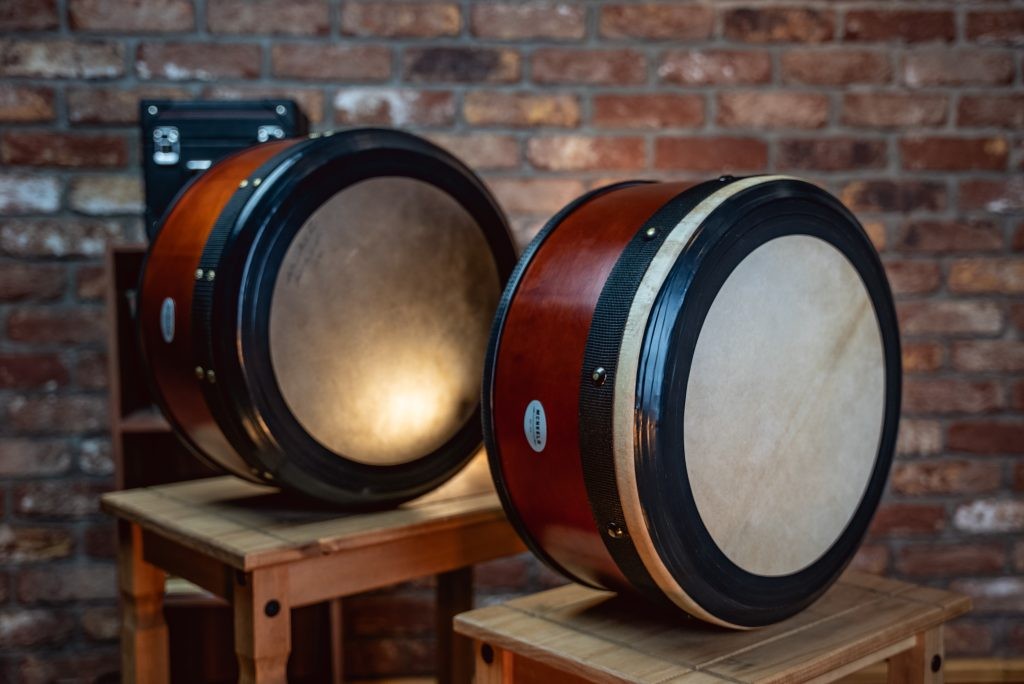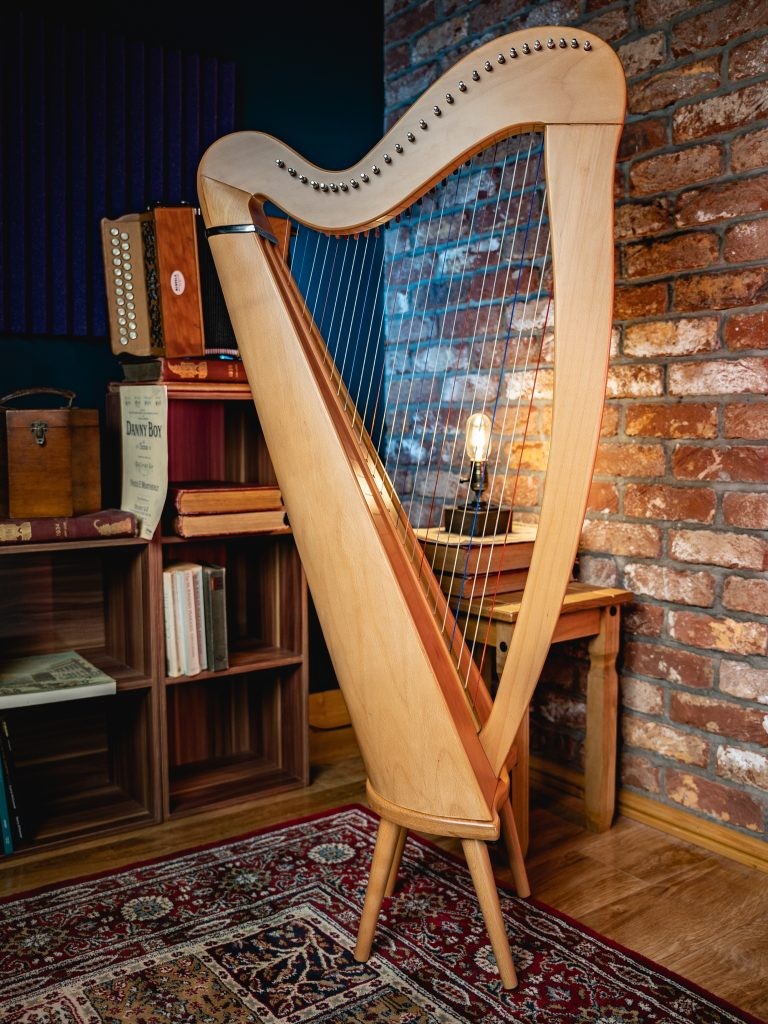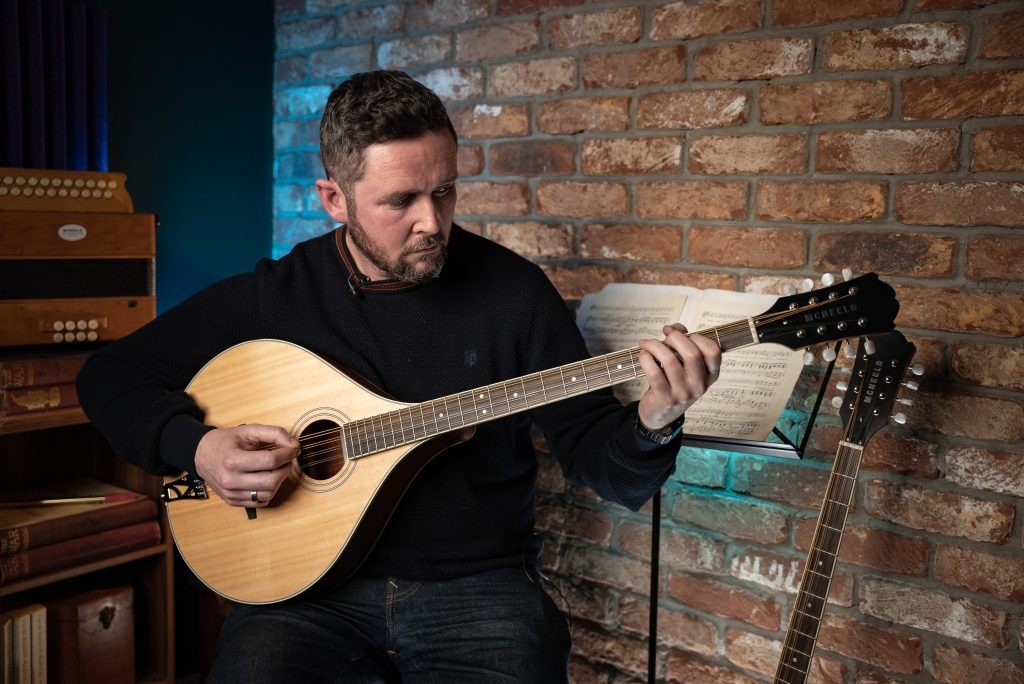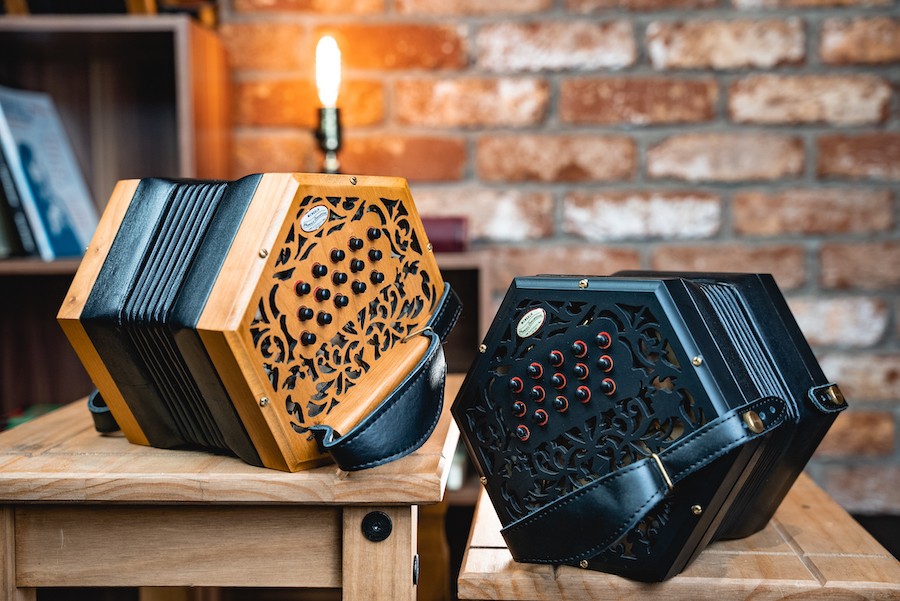Are you planning a trip to Vietnam and eager to immerse yourself in its rich cultural heritage? Finding authentic traditional musical instruments can be a highlight of your journey. SIXT.VN understands this desire and offers expert travel advice to help you locate the best sources for these unique treasures, ensuring an unforgettable cultural experience. Discover hidden gems and authentic Vietnamese craftsmanship with ease.
1. What Traditional Musical Instruments Can I Find in Vietnam?
Vietnam boasts a rich tapestry of traditional musical instruments, each with its own unique sound and cultural significance. Here are a few that you might come across:
- Đàn Bầu (Monochord): A one-stringed instrument that produces mesmerizing sounds through harmonics.
- Đàn Tranh (Zither): A multi-stringed instrument with a bright, resonant tone, often used in court music and folk performances.
- Đàn Nguyệt (Moon Lute): A two-stringed lute with a distinctive round body, known for its mellow and expressive sound.
- Sáo Trúc (Bamboo Flute): A simple yet versatile flute made from bamboo, used in various genres of Vietnamese music.
- Trống (Drums): A variety of drums, from small hand drums to large ceremonial drums, play a crucial role in Vietnamese music and rituals.
- Cồng Chiêng (Gongs): Often found in the Central Highlands, these bronze gongs are used in ensemble performances and hold deep cultural significance for ethnic minority groups.
Exploring these instruments offers a fascinating glimpse into Vietnam’s diverse musical heritage.
2. Why is it important to buy traditional musical instruments from reputable sources?
Purchasing from reputable sources is vital for ensuring the authenticity and quality of your instrument. Here’s why:
- Authenticity: Reputable sources, like established music stores or artisan workshops, offer genuine instruments crafted using traditional methods and materials.
- Quality: These sources prioritize quality craftsmanship, ensuring the instrument produces the intended sound and lasts for years.
- Support for Artisans: Buying from reputable sources often supports local artisans and helps preserve traditional crafts.
- Ethical Practices: These sources typically adhere to ethical business practices, ensuring fair wages and sustainable sourcing of materials.
- Warranty and Support: Many reputable sellers offer warranties and support, providing peace of mind with your purchase.
Choosing reputable sources ensures you get a genuine, high-quality instrument while contributing to the preservation of Vietnamese musical heritage.
3. Where Can I Buy Traditional Musical Instruments in Hanoi?
Hanoi offers several excellent locations to purchase traditional musical instruments:
- Phố Hàng Mã (Hang Ma Street): Known for its vibrant atmosphere and traditional crafts, you can find shops selling various instruments, though quality may vary, so careful inspection is advised.
- Nhạc cụ Tiến Mạnh (Tien Manh Musical Instruments): A well-known music store offering a range of instruments, including traditional Vietnamese ones.
- Cửa hàng nhạc cụ Phong Vân (Phong Van Music Store): Another reputable store with a selection of traditional instruments and accessories.
- Artisan Workshops: Consider visiting artisan workshops in the surrounding areas of Hanoi for unique, handcrafted instruments directly from the makers.
SIXT.VN can arrange transportation to these locations, ensuring a comfortable and convenient shopping experience.
 Hang Ma Street Hanoi
Hang Ma Street Hanoi
Discover the vibrant Hang Ma Street in Hanoi, where traditional musical instruments await exploration.
4. What are the best music stores in Ho Chi Minh City to buy traditional instruments?
Ho Chi Minh City also has several reputable music stores:
- Nhạc cụ Việt Thanh (Viet Thanh Musical Instruments): A large music store with a wide selection of instruments, including traditional Vietnamese ones.
- Cửa hàng nhạc cụ Sóng Nhạc (Song Nhac Music Store): Known for its quality instruments and knowledgeable staff.
- Kim Thanh Music: Another well-regarded music store with a range of traditional instruments.
- Bán Đàn Guitar (Guitar Shop): While primarily a guitar shop, they often carry a selection of other traditional instruments.
SIXT.VN can provide transportation and translation services to help you navigate these stores and find the perfect instrument.
5. How can I ensure the quality of the instrument I am buying?
Ensuring the quality of a traditional musical instrument requires careful inspection and consideration:
- Material: Check the quality of the materials used. For example, bamboo flutes should be made from mature, properly dried bamboo.
- Craftsmanship: Examine the instrument for fine details and overall construction quality. Look for clean joints, smooth finishes, and well-placed components.
- Sound: If possible, play the instrument to assess its sound quality. Listen for a clear, resonant tone without buzzing or distortion.
- Reputation: Buy from reputable sources known for quality instruments and customer satisfaction.
- Expert Advice: If you’re unsure, seek advice from a knowledgeable musician or instrument expert.
According to research from the Vietnam National Academy of Music in 2022, instruments crafted with high-quality materials and meticulous craftsmanship produce superior sound and durability. SIXT.VN can connect you with local experts to assist in your selection.
6. Can I buy traditional musical instruments online in Vietnam?
Yes, buying online is an option, but proceed with caution:
- Reputable Online Stores: Look for established music stores with online platforms.
- Detailed Descriptions: Ensure the product description includes detailed information about the instrument, materials, and craftsmanship.
- Customer Reviews: Read customer reviews to gauge the experiences of other buyers.
- Return Policy: Check the store’s return policy in case the instrument doesn’t meet your expectations.
- Secure Payment: Use secure payment methods to protect your financial information.
Research from the Vietnam E-Commerce Association in 2023 indicates a growing trend in online purchases of musical instruments, but emphasizes the importance of verifying the seller’s credibility.
7. What is the price range for traditional musical instruments in Vietnam?
The price range varies depending on the type of instrument, materials, and craftsmanship:
- Bamboo Flutes: $5 – $30
- Đàn Bầu: $50 – $200
- Đàn Tranh: $150 – $500
- Đàn Nguyệt: $100 – $300
- Gongs: $200 – $1000+
Prices can be higher for handcrafted instruments made from premium materials. Bargaining is common in markets and smaller shops.
8. Are there any cultural considerations when buying or playing traditional instruments?
Yes, be mindful of cultural considerations:
- Respect: Treat the instruments with respect, as they often hold cultural and historical significance.
- Proper Use: Learn about the proper playing techniques and etiquette associated with the instrument.
- Appropriate Occasions: Be aware of the occasions when certain instruments are traditionally played.
- Learning from Locals: Seek guidance from local musicians or cultural experts to deepen your understanding.
A survey by the Vietnam National Administration of Tourism in 2024 found that tourists who show respect for local culture and traditions have more enriching and memorable experiences. SIXT.VN can connect you with cultural guides to provide valuable insights.
9. Can I take traditional musical instruments back to my home country?
Yes, but check regulations:
- Airline Restrictions: Check with your airline regarding size and weight restrictions for musical instruments.
- Customs Regulations: Be aware of customs regulations in both Vietnam and your home country. Some instruments may require permits or declarations.
- CITES Regulations: If the instrument is made from endangered species (e.g., certain types of wood or animal products), it may be subject to CITES regulations.
SIXT.VN can assist with logistics and provide information on relevant regulations.
10. Are there any workshops or classes where I can learn to play traditional instruments in Vietnam?
Yes, numerous workshops and classes are available:
- Hanoi:
- Vietnam National Academy of Music: Offers courses in traditional Vietnamese music.
- Private Tutors: Many private tutors offer lessons on various instruments.
- Ho Chi Minh City:
- Ho Chi Minh City Conservatory of Music: Provides instruction in traditional music.
- Cultural Centers: Local cultural centers often host workshops and classes.
According to the Ministry of Culture, Sports and Tourism, participating in workshops and classes is an excellent way to immerse yourself in Vietnamese culture and gain a deeper appreciation for its musical heritage. SIXT.VN can help you find and book classes tailored to your interests.
11. What are the best traditional musical instruments for beginners?
For beginners, some instruments are easier to learn than others:
- Sáo Trúc (Bamboo Flute): Relatively easy to learn basic melodies and techniques.
- Đàn Bầu (Monochord): Simple in design, but requires practice to master its unique playing style.
- Trống (Drums): Basic drumming techniques can be learned quickly, providing a foundation for more complex rhythms.
Consider your personal preferences and musical goals when choosing an instrument to learn.
 Dan Bau Instrument
Dan Bau Instrument
Explore the enchanting sounds of the Dan Bau, a traditional Vietnamese monochord, known for its expressive melodies.
12. How do traditional Vietnamese instruments compare to Western instruments?
Traditional Vietnamese instruments differ significantly from Western instruments in terms of:
- Tuning Systems: Vietnamese music often uses different tuning systems than Western music.
- Scales and Modes: The scales and modes used in Vietnamese music may sound unfamiliar to Western ears.
- Playing Techniques: Traditional instruments require unique playing techniques that differ from Western instruments.
- Timbre: The timbre or sound quality of Vietnamese instruments is often distinct from Western instruments.
Exploring these differences can broaden your musical horizons and provide a deeper appreciation for the diversity of musical traditions around the world.
13. Can I visit any traditional music performances in Hanoi or Ho Chi Minh City?
Yes, both cities offer opportunities to experience traditional music performances:
- Hanoi:
- Thăng Long Water Puppet Theatre: Features traditional music performances accompanying water puppet shows.
- Vietnam National Academy of Music: Hosts concerts and recitals showcasing traditional music.
- Ho Chi Minh City:
- Ho Chi Minh City Opera House: Occasionally features performances of traditional Vietnamese opera and music.
- Cultural Centers: Local cultural centers often host traditional music performances.
SIXT.VN can arrange tickets and transportation to these performances, providing an unforgettable cultural experience.
14. What are some tips for bargaining when buying musical instruments in Vietnam?
Bargaining is a common practice in Vietnamese markets and smaller shops:
- Start Low: Begin with an offer well below the asking price.
- Be Polite: Maintain a friendly and respectful demeanor.
- Do Your Research: Know the approximate value of the instrument you’re interested in.
- Be Willing to Walk Away: If the seller doesn’t meet your price, be prepared to walk away.
- Bundle Purchases: Try to negotiate a better price by buying multiple items.
- Use Local Currency: Paying in Vietnamese Dong can sometimes result in a better price.
Remember, bargaining is a cultural norm, so embrace the experience and have fun.
15. How can SIXT.VN help me find the best traditional musical instruments?
SIXT.VN offers a range of services to help you find the best traditional musical instruments:
- Transportation: Providing comfortable and convenient transportation to music stores, artisan workshops, and cultural centers.
- Translation: Offering translation services to facilitate communication with vendors and artisans.
- Expert Advice: Connecting you with local musicians and cultural experts to assist in your selection.
- Customized Itineraries: Creating customized itineraries tailored to your interests, including visits to music-related destinations.
- Logistics Support: Assisting with shipping and customs regulations for transporting instruments back to your home country.
Let SIXT.VN be your guide to discovering the rich musical heritage of Vietnam and finding the perfect traditional instrument to cherish for years to come.
16. Are there any ethical considerations regarding the materials used in traditional instruments?
Yes, ethical considerations are important:
- Sustainable Sourcing: Inquire about the source of materials like wood, animal skins, and ivory.
- Endangered Species: Avoid instruments made from endangered species or materials obtained through illegal means.
- Fair Trade Practices: Support artisans and vendors who adhere to fair trade practices, ensuring fair wages and working conditions.
By making informed choices, you can contribute to the preservation of Vietnam’s natural and cultural heritage.
17. Can I commission a custom-made instrument from a Vietnamese artisan?
Yes, commissioning a custom-made instrument is a great way to obtain a unique and personalized piece:
- Find a Reputable Artisan: Research and identify a skilled artisan specializing in the type of instrument you desire.
- Discuss Your Requirements: Clearly communicate your specifications, including materials, dimensions, and desired sound quality.
- Establish a Timeline and Budget: Agree on a realistic timeline and budget for the project.
- Regular Communication: Maintain regular communication with the artisan throughout the process to ensure your expectations are met.
SIXT.VN can connect you with talented artisans and facilitate the commissioning process.
18. What are some common misconceptions about traditional Vietnamese music?
Common misconceptions include:
- It’s All the Same: Vietnamese music is incredibly diverse, with regional variations and distinct genres.
- It’s Always Slow and Melancholic: While some traditional music is slow and contemplative, other genres are lively and upbeat.
- It’s Only for Older Generations: Traditional music is enjoyed by people of all ages in Vietnam.
- It’s Dying Out: Traditional music is experiencing a revival, with young musicians embracing and innovating within the tradition.
By challenging these misconceptions, you can gain a more nuanced understanding and appreciation for the richness of Vietnamese music.
 Irish Bouzouki
Irish Bouzouki
Discover the vibrant sounds of the Irish Bouzouki, a popular instrument in traditional Irish music.
19. Are there any museums or cultural centers dedicated to traditional music in Vietnam?
Yes, several museums and cultural centers showcase traditional music:
- Vietnam Museum of Ethnology (Hanoi): Features exhibits on the musical traditions of Vietnam’s diverse ethnic groups.
- Vietnam National Academy of Music (Hanoi): Has a museum showcasing traditional instruments and musical artifacts.
- Southern Women’s Museum (Ho Chi Minh City): Includes exhibits on the role of women in Vietnamese music and culture.
- Local Cultural Centers: Many regional cultural centers have exhibits and performances related to traditional music.
Visiting these institutions can provide valuable context and insights into the history and significance of Vietnamese music.
20. How can I support the preservation of traditional Vietnamese music?
You can support the preservation of traditional Vietnamese music by:
- Attending Performances: Support local musicians and cultural organizations by attending their performances.
- Buying Authentic Instruments: Purchase instruments from reputable sources that support local artisans.
- Taking Lessons: Learn to play a traditional instrument and share your knowledge with others.
- Donating to Cultural Organizations: Contribute to organizations dedicated to preserving and promoting traditional music.
- Spreading Awareness: Share your passion for Vietnamese music with friends and family.
By taking these actions, you can play a role in ensuring that traditional Vietnamese music continues to thrive for generations to come.
21. What role does music play in Vietnamese culture?
Music plays a central role in Vietnamese culture, serving various functions:
- Rituals and Ceremonies: Music is an integral part of religious ceremonies, festivals, and other cultural rituals.
- Storytelling: Traditional music often conveys stories, legends, and historical events.
- Social Cohesion: Music brings people together, fostering a sense of community and shared identity.
- Entertainment: Music provides entertainment and enjoyment for people of all ages.
- Emotional Expression: Music allows for the expression of a wide range of emotions, from joy and celebration to sorrow and contemplation.
Understanding the multifaceted role of music in Vietnamese culture enhances your appreciation for its artistic and cultural value.
22. What are some popular festivals in Vietnam where I can experience traditional music?
Several festivals offer opportunities to experience traditional music:
- Tet Nguyen Dan (Lunar New Year): Features traditional music performances, folk games, and cultural activities.
- Mid-Autumn Festival: Celebrated with traditional music, lion dances, and lantern processions.
- Hue Festival: A biennial festival showcasing traditional music, dance, and art from the former imperial capital.
- Giong Festival: Celebrates the mythical hero Thanh Giong with traditional music and rituals.
Attending these festivals provides an immersive experience of Vietnamese culture and musical traditions.
23. How has traditional Vietnamese music evolved over time?
Traditional Vietnamese music has evolved over centuries, influenced by various factors:
- Chinese Influence: Early Vietnamese music was influenced by Chinese musical traditions.
- Indigenous Traditions: Local indigenous musical traditions contributed to the unique character of Vietnamese music.
- Court Music: The royal courts of Vietnam developed sophisticated musical forms.
- French Colonial Period: Western musical influences were introduced during the French colonial period.
- Modernization: Contemporary Vietnamese musicians are blending traditional music with modern styles and technologies.
Understanding this evolution provides a deeper appreciation for the dynamic nature of Vietnamese music.
24. What are some unique features of Vietnamese musical scales and modes?
Vietnamese musical scales and modes, or điệu, possess distinct characteristics:
- Pentatonic Scales: Many Vietnamese musical scales are pentatonic, consisting of five notes.
- Microtones: Some scales incorporate microtones, intervals smaller than a semitone.
- Ornamentation: Melodies are often highly ornamented with trills, slides, and other embellishments.
- Modal Variations: Different modes convey different emotions and are used for specific purposes.
- Regional Differences: Scales and modes vary across different regions of Vietnam.
These unique features contribute to the distinctive sound of Vietnamese music.
 Vietnamese Concertinas
Vietnamese Concertinas
Explore the captivating world of Vietnamese Concertinas, where music meets cultural heritage.
25. How does Vietnamese music reflect the country’s history and culture?
Vietnamese music reflects the country’s history and culture in many ways:
- National Identity: Music serves as a symbol of Vietnamese national identity, preserving cultural traditions and values.
- Historical Narratives: Many songs and musical dramas recount historical events and legends.
- Social Commentary: Music is used to express social commentary and critique.
- Cultural Values: Musical themes often reflect Vietnamese cultural values such as family, community, and respect for ancestors.
- Resilience and Resistance: Music has played a role in resisting foreign domination and preserving Vietnamese cultural identity.
By exploring the connections between music and culture, you can gain a deeper understanding of Vietnamese history and society.
26. How do traditional Vietnamese instruments contribute to the unique sound of Vietnamese music?
Traditional Vietnamese instruments contribute to the unique sound of Vietnamese music through their:
- Unique Timbre: Each instrument possesses a distinct timbre or sound quality.
- Tuning Systems: The tuning systems used in Vietnamese music create unique harmonic relationships.
- Playing Techniques: The playing techniques employed on traditional instruments produce distinctive sounds and effects.
- Ensemble Combinations: The combination of different instruments in ensembles creates a rich and complex sonic landscape.
- Cultural Associations: Traditional instruments carry cultural associations that contribute to the overall meaning and impact of the music.
By appreciating the unique contributions of each instrument, you can gain a deeper understanding of the overall sound of Vietnamese music.
27. What advice do local musicians have for foreigners interested in learning Vietnamese music?
Local musicians offer valuable advice for foreigners interested in learning Vietnamese music:
- Be Patient: Learning a new musical tradition takes time and dedication.
- Find a Good Teacher: Seek out a knowledgeable and experienced teacher.
- Immerse Yourself in the Culture: Attend performances, listen to recordings, and engage with local musicians.
- Practice Regularly: Consistent practice is essential for developing proficiency.
- Be Open to New Sounds: Embrace the unique sounds and musical concepts of Vietnamese music.
- Respect the Tradition: Show respect for the cultural and historical significance of the music.
By following this advice, you can embark on a rewarding journey of musical discovery.
28. How can I find authentic, high-quality recordings of traditional Vietnamese music?
Finding authentic recordings requires some research:
- Reputable Music Stores: Check with reputable music stores in Vietnam, both physical and online.
- Cultural Organizations: Contact cultural organizations and museums for recommendations.
- Online Streaming Services: Explore streaming services like Spotify and Apple Music, but be selective about the sources.
- Academic Archives: Consult academic archives and libraries for scholarly recordings.
- Word of Mouth: Ask local musicians and experts for recommendations.
Be wary of pirated or low-quality recordings, and prioritize sources known for their authenticity and commitment to preserving Vietnamese music.
29. Are there any government programs in place to support traditional music in Vietnam?
Yes, the Vietnamese government has programs to support traditional music:
- Funding for Cultural Organizations: Providing financial support to cultural organizations dedicated to preserving and promoting traditional music.
- Music Education Programs: Supporting music education programs in schools and universities.
- Preservation of Traditional Instruments: Funding the creation and maintenance of traditional instruments.
- Promotion of Traditional Music Performances: Organizing and supporting traditional music performances and festivals.
- Recognition of Master Musicians: Honoring and supporting master musicians who are keepers of traditional knowledge.
These programs demonstrate the government’s commitment to preserving and promoting Vietnam’s rich musical heritage.
30. How can I integrate my experience with traditional Vietnamese music into my travel itinerary?
Integrating music into your itinerary can enhance your travel experience:
- Attend Performances: Plan to attend traditional music performances in Hanoi, Ho Chi Minh City, or other regions.
- Visit Music-Related Destinations: Include visits to museums, cultural centers, and artisan workshops.
- Take Music Lessons: Schedule a lesson on a traditional instrument.
- Purchase Instruments or Recordings: Buy authentic instruments or recordings as souvenirs.
- Engage with Local Musicians: Seek out opportunities to meet and interact with local musicians.
- Learn About the Cultural Context: Read about the history and cultural significance of Vietnamese music.
By incorporating these elements into your itinerary, you can create a more immersive and enriching travel experience.
SIXT.VN is your ideal partner for planning a cultural journey focused on Vietnamese music, offering customized itineraries, transportation, translation services, and expert advice.
Ready to explore the captivating world of traditional Vietnamese music? Contact SIXT.VN today to start planning your unforgettable cultural adventure! Visit our website or call +84 986 244 358 for personalized assistance. Our address is 260 Cau Giay, Hanoi, Vietnam. Let us help you discover the sounds and treasures of Vietnam!
FAQ: Buying Traditional Musical Instruments in Vietnam
1. Is it easy to find traditional musical instruments in Vietnam?
Yes, traditional musical instruments are available in major cities like Hanoi and Ho Chi Minh City, but quality can vary.
2. What is the most popular traditional instrument in Vietnam?
The Đàn Bầu (monochord) is one of the most iconic and popular traditional instruments.
3. Can I bargain for a better price when buying instruments?
Yes, bargaining is common in markets and smaller shops, so feel free to negotiate.
4. How can I ensure the instrument I buy is authentic?
Purchase from reputable stores or artisan workshops to ensure authenticity.
5. Are there any cultural considerations when playing Vietnamese music?
Yes, treat the instruments with respect and learn about proper playing techniques.
6. Can I take a traditional instrument on a plane back home?
Check with your airline and customs regulations regarding size, weight, and any necessary permits.
7. Are there classes available for learning traditional instruments?
Yes, many music schools and cultural centers offer classes.
8. What’s a good instrument for a beginner to start with?
The Sáo Trúc (bamboo flute) is relatively easy to learn and a good starting point.
9. How does SIXT.VN assist in finding these instruments?
SIXT.VN provides transportation, translation services, and expert advice to help you find the best instruments.
10. What should I know about ethical sourcing of materials?
Inquire about sustainable sources of materials and avoid instruments made from endangered species.



